Behind the News
Behind the News: All the backstories to our major news this week
Published
1 year agoon
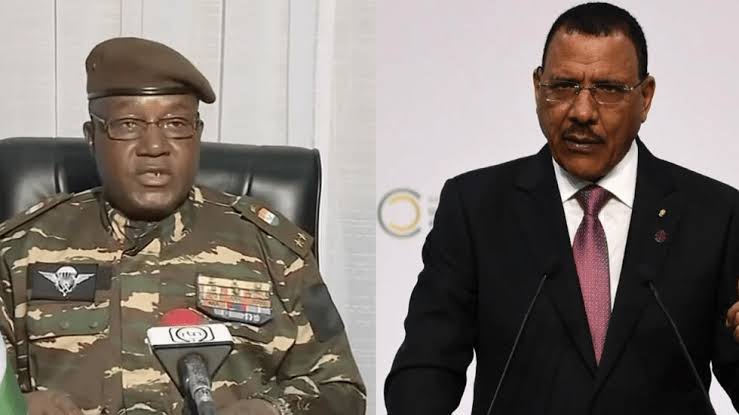
Over the past week, there were lots of important stories from around the African continent, and we served you some of the most topical ones.
Here is a rundown of the backstories to some of the biggest news in Africa that we covered during the week:
1. Niger’s US ambassador cries out in fear over Bazoum’s life
The life of ousted President Mohamed Bazoum of Niger Republic could be in danger, according to the country’s
Ambassador to the United States, Mamadou Kiari Liman-Tinguiri, who appealed to the United States and other international organisations to do everything possible to save the embattled president.
Bazoum, who was overthrown in a coup by his elite presidential guards led by its commander, Gen. Abdourahmane Tchiani, on July 26, is reportedly being detained along with his family in deplorable conditions, according to Liman-Tinguiri, who is a close associate of Bazoum’s.
While raising the alarm, the ambassador disclosed that after nearly three weeks in detention, Bazoum’s health had deteriorated greatly, and appealed to the United States and other allies for help in restoring the president to power.
Since Bazoum’s ouster, there have been concerns over his health and that of his family’s. The UN and the United States have particularly expressed concerns over their well-being, revealing that they were being held under deplorable conditions and fearing for their safety.
2. Niger: Nigerian militant leader, Asari-Dokubo, to the rescue
A Nigerian militant leader, Mujahid Asari Dokubo, got into the news when he offered his “services” to the Economic Community of West African States (ECOWAS), to lead his militia into Niger Republic to fight and remove the military junta that overthrew President Mohamed Bazoum in a coup on July 26.
Dokubo, the leader of the Niger Delta Peoples Salvation Force (NDPSF) based in southern Nigeria, who was worried with the fact that the regional body was holding back in attacking the Niger junta, said if he was given the nod, it would not take him and his troops long to get into Niger and defeat the junta.
“If the government commissions me and my people to go to Niger Republic, we will go. We will defeat them and we will come back victorious. It is not a boast,” he said in a video he posted on Twitter.
“If Niger Republic likes, let them go and bring anybody, they are human beings like us. We will go there, defeat them and restore democratic order,” the militant leader boasted in the video.
Dokubo has been at the centre controversy in recent times. He was seen in a video with his militia recently, sparking reactions. Some commentators expressed fear that he could possibly represent a national security threat as a non-state actor with his own armed group.
As a strong ally of the president’s, some believe his renewed outspokenness is tied to his belief that he has the president’s backing.
3. Zimbabwean President’s troubling boast
During the week under review, President of Zimbabwe, Emmerson Mnangagwa, boasted that if the citizens of the country failed to return him to power in the August 23 presidential election, they would end up suffering from the decision.
Mnangagwa, who made the threat while addressing his supporters at his campaign rally in the capital, Harare, said the citizens would suffer untold hardship if they failed to re-elect him.
Mnangagwa, who has been in power since the country gained independence in 1980, also described his opponents in the upcoming election as clueless failures who would not alleviate the suffering of the people.
“We, Zanu-PF, will not stand by and let our people suffer at the hands of these clueless opposition-led councils. We must kick them out on 23 August,” the 80-year-old Mnangagwa said.
“If Harare fails to vote Zanu-PF, you will be lost. No one will stop us from ruling this country,” he said at the party’s first major rally in the capital.”
Zimbabwe is set for presidential and parliamentary elections, with the presidential race having 11 candidates, including the incumbent president and the main opposition candidate, Nelson Chamisa of the Citizen’s Coalition for Change (CCC), and whom many Zimbabweans consider to be the most formidable challenger to Mr Mnangagwa.
4. All shades of Rema as he breaks 41-year-old US Billboard record
23-year-old Nigerian music prodigy, Divine Ikubor, popularly known as Rema, broke and set a new record for the longest-charting African album on the US Billboard 200 with his debut album, “Raves & Roses”, with a historic 30th week on the chart.
The “Calm Down” crooner broke a 41-year record set by legendary Nigerian Juju maestro, King Sunny Ade, who had the longest-running album in the US Billboard 200 chart’s history.
King Sunny Ade’s record which he set with his classic album, “Juju Music” in 1982, 18 years before Rema was born, had stood unchallenged before the youngster shattered it.
Apart from King Sunny Ade’s record, Rema also broke the previous record held by another Nigerian megastar, Wizkid, whose “Made In Lagos” album spent 29 weeks on the Billboard 200 chart and was the longest-running Nigerian project in the chart’s history.
5. India pledges $2m to fund Africa’s digital project
The Indian government on Saturday, August 12, committed to contributing the sum of $2 million to the Africa Digital Financial Inclusion Facility (ADFI) so as to assist the continent in “breaking down barriers to growth and uptake of digital financial solutions and accelerate financial inclusion in Africa.”
The pledge, according to Additional Secretary in the Department of Economic Affairs and Principal ADFI Governing Council Member for India, Manisha Sinha, is part of India’s collaboration with ADFI enable the facility learn from best practices and help scale up initiatives to meet the needs of financially excluded and underserved people in Africa.
Sinha said the funding would facilitate a unique, affordable, inclusive, and equitable model of India’s Digital Public Infrastructure (DPI) and offered shared learning opportunities across the digital finance ecosystem.
“India’s pioneering role in digital financial services, extending financial inclusion to remote rural areas and creating infrastructure for digitisation of financial services, opens a significant opportunity for India to work within the ADFI partnership to share learning and expertise on digital public infrastructure to further digital financial inclusion across the continent,” Sinha said while making the announcement.
You may like
-
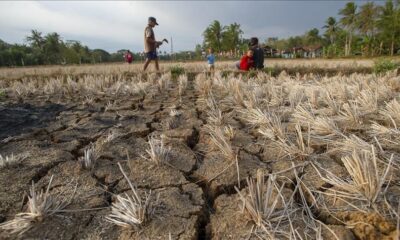

Zimbabwe at risk of fresh dry season after El Nino, WFP warns
-


Rema, Ayra Starr, Tems make Rolling Stone’s Top 100 albums of 2024
-
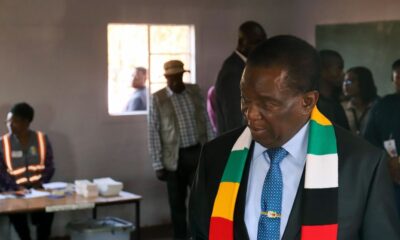

Zimbabwe aims to reconnect to global finance at debt summit
-
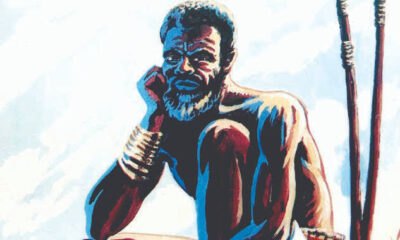

Zimbabwe calls on UK to return remains of 19th century warriors
-
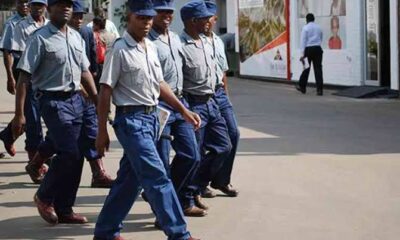

Zimbabwe bans police from using mobile phones while on duty
-
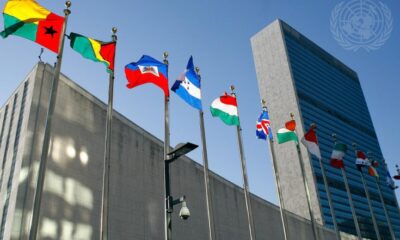

Behind the News: All the backstories to our major news this week
Behind the News
Behind the News: All the backstories to our major news this week
Published
2 months agoon
October 18, 2024
Over the past week, many important stories from around the African continent were published, and we served you some of the most topical ones.
Here is a rundown of the backstories to some of the biggest news in Africa that we covered during the week:
Another look at Africa’s debt crisis
Conversations around Africa’s public debt were on the table during the week as Achim Steiner, administrator of the United Nations Development Programme, stated on Monday that the world’s poorest countries were unable to meet sustainable development targets because they had to prioritise debt payments over investments.
Addressing a gathering in Hamburg, Steiner asserted that the world financial crisis was impeding countries’ ability to accomplish the objectives, which include eradicating hunger and poverty, increasing access to healthcare and education, providing sustainable energy, and protecting biodiversity.
Since the COVID-19 pandemic’s pervasive effects on economies, the majority of the continent’s nations have suffered with both internal and international debt; yet, few have achieved much in the fight for debt restructuring under the G20 framework.
Numerous African nations, including Egypt, Tunisia, Nigeria, Ghana, Zambia, and others, are struggling with significant foreign debt. Together with Zambia and Ghana, Ethiopia will be a part of a thorough restructuring known as the “Common Framework.”
At the opening ceremony of the annual African Union summit in Ethiopia last year, UN Secretary-General Antonio Guterres made the case for changes to the international financial system’s structure to better meet the requirements of developing nations.
Africa’s whole external governmental debt as of 2021 was 726.55 billion USD. The amount of foreign public debt increased from 696.69 billion dollars in comparison to the previous year.
Concerns are being raised by the rising debt levels in Africa, which could not only hinder economic growth but also make repayment nearly difficult for many of these nations. This begs an important question: When does debt stop being beneficial and instead start to negatively impact a nation’s economic performance?
Kenya remains committed to Haiti, but what does it stand to gain?
Kenya will support an international anti-gang effort in Haiti next month by dispatching an additional 600 police officers there. Haiti’s prime minister was in Kenya to expedite the deployment of the military.
At least eleven countries have pledged to send more than 2,900 soldiers to participate in the Multinational Security Support (MSS), led by Kenya.
Kenya, whose participation in international peacekeeping missions is longstanding, declared earlier this year that it would be deploying 1,000 police personnel, citing as a starting point its assistance to a bordering country.
Approximately 600,000 individuals have been internally displaced due to gang conflict, and hundreds of thousands of aspiring migrants have been deported back to Haiti, where approximately 5 million people are facing extreme famine. October marks the end of the mission’s first 12-month term. As gang violence worsened in 2022, Haiti turned for the first time to foreign assistance.
Nevertheless, it failed to identify a leader prepared to assume the helm and numerous foreign governments were reluctant to back the unelected administration in the desperately poor nation.
Kenya gains significant political value by sending its troops to Haiti on the international scene. Kenya has gained international recognition as a trustworthy ally that is eager to assist other nations. The mission opens up various opportunities. Prior to deployment, Kenyan law enforcement forces will receive specialist training and equipment. In the long term, this will increase the force’s capacity. Of course, there are monetary rewards as the participating nations receive allocations of resources. Because troops will receive additional pay, officers are very interested in being deployed overseas.
Cameroon: ‘Healthy’ Biya remains out of sight
Cameroon’s president, Paul Biya can now be likened to the proverbial cat with nine lives as the 91-year-old has remained “healthy” following latest reports of his death during the week. Rumours have been circulating about Cameroonian President Paul Biya’s possible death in a military hospital in France due to his extended absence. This rumour stems from Biya’s prolonged absence following the September China-Africa Summit when he was anticipated to head back to Cameroon almost away.
As of November 6, 1982, Biya, who is 91 years old, has been in office for 42 years. He is the oldest head of state in Africa, the longest-lasting non-royal national leader worldwide, and the second-longest serving president overall. According to rumours, Biya’s oldest son Franck Emmanuel Biya may be named as his replacement for “continuity” in France.
Since its political independence from France and Britain in the early 1960s, Cameroon has only had two presidents. The country is currently dealing with two serious crises: a deadly Boko Haram insurgency in the north and a separatist conflict that has claimed thousands of lives.
President Biya is one of several long-serving African leaders, including Yoweri Museveni of Uganda, who has been in office since 1982, and Teodoro Obiang Nguema Mbasogo of Equatorial Guinea, Rwanda’s Paul Kagame is also gradually evolving into the group.
Things get tougher for embattled Kenyan Deputy President
During the week, the deputy president of Kenya was impeached by the National Assembly due to charges of corruption and abuse of power. In a vote held Tuesday night, lawmakers decisively decided to remove Rigathi Gachagua from office. The Senate will now decide what will happen to the deputy president.
Parliament adopted a proposal to remove Kenya’s deputy president from office, and on Wednesday, the matter was brought to the Senate for consideration. The National Assembly heard a nearly ninety-minute defence of troubled deputy president Rigathi Gachagua and his allies prior to the vote.
A surge of protests targeting President Ruto’s government has been occurring in Kenya over the last four months due to accusations of corruption made by certain lawmakers and government officials. High taxation and the parliament’s purported inability to act independently of the president were other issues that Kenyans objected to. Gachagua refutes the accusations made by certain lawmakers, who claim that the deputy president assisted in planning rallies against the government.
He supported Ruto in his election victory in 2022 and assisted in obtaining a sizable portion of the vote from the populated central Kenya region. Gachagua, however, has mentioned feeling marginalised in recent months, despite extensive claims in the local media that he and Ruto have strained political ties.
After widespread protests over unpopular tax increases in June and July that claimed more than 50 lives, Ruto sacked the majority of his cabinet and appointed members of the main opposition.
Gachagua infuriated many in Ruto’s coalition by comparing the government to a business and implying that people who supported the coalition had first claim to development projects and jobs in the public sector. Ruto has not yet publicly commented on the impeachment proceedings.
Behind the News
Behind the News: All the backstories to our major news this week
Published
3 months agoon
October 3, 2024
Over the past week, many important stories from around the African continent have been published, and we have served you some of the most topical ones.
Here is a rundown of the backstories of some of the biggest news in Africa that we covered during the week:
Musings on CBN rates across Africa: Ghana, Nigeria, and South Africa
During the week, many African countries announced monetary policy decisions. The Central Bank of Nigeria decided unanimously on Tuesday to raise its benchmark interest rate by an additional 50 basis points, to a new record high of 27.25%. This is the sixth hike in a row this year. The decision was made in an effort to reduce inflation, strengthen the naira, and draw in capital. Governor Olayemi Cardoso reaffirmed the bank’s commitment to controlling inflation and underlined how several rate hikes have contributed to its moderation.
Nigeria’s West Africa neighbour followed suit on Friday as the Bank of Ghana reduced its benchmark monetary policy rate by 200 points to 27% at a normal meeting. With inflation having slowed and disinflationary pressures mounting, this is the first decline in eight months and the steepest since March 2018. August 2024 saw a fifth consecutive month of decline in Ghana’s annual consumer inflation, which was still much higher than the central bank’s medium-term target range of 6% to 10%. The country’s annual inflation rate dropped to a nearly two-and-a-half-year low of 20.4% from 20.9% in July.
A week prior, as anticipated, the South African Reserve Bank decreased its benchmark interest rate by 25 basis points to 8% after holding seven consecutive meetings at a 15-year high of 8.25%. As price pressures decreased, the SARB is loosening policy for the first time since the epidemic in 2020
As monetary varying shifts across the continent continue, African nations are still facing numerous severe shocks and significant structural challenges, such as rising food and energy prices brought on by geopolitical tensions like Russia’s invasion of Ukraine, climate issues that impact agriculture and energy production, and ongoing political instability.
Africa’s real GDP growth slowed to 3.1% in 2023 from 4.1% in 2022 as a result of this difficult climate. With growth predicted to reach 3.7% in 2024 and 4.3% in 2025, the economic picture is projected to improve going ahead, underscoring the resilience of African countries.
Zambia and its post-drought plans
Zambia’s finance minister, Situmbeko Musokotwane stated on Friday that the nation intends to quickly recover from its worst drought in living memory and cut its budget deficit in half the following year.
The minister stated in a budget address that the copper producer hopes for a 6.6% growth in 2025, as opposed to a projected 2.3% increase in 2024. The country is aiming for a speedy recovery. as the government crop assessment data shows that over nine million people are affected in 84 of the 117 districts after suffering through the driest farming season in over forty years, which has led to considerable crop losses, an increase in livestock deaths, and worsening poverty,
Real GDP increased gradually between 2022 and 2023, from 5.2% to 5.8%. The supply side was driven by mining and quarrying, wholesale and retail commerce, and agriculture; the demand side was driven by consumer and business spending. Food prices, transit expenses, and the nominal exchange rate are the key drivers of inflation, which is expected to remain elevated and reach 11.0% and 10.9% at the end of 2022 and 2023, respectively.
The economic challenges faced by Zambia are exacerbated by the drought, especially when considering its debt load. Its debt restructuring talks under the G20 Common Framework have progressed far more slowly than was originally anticipated when the Common Framework was first proposed.
In 2017, Zambia was placed under debt distress, and as a result, non-concessional lending from multilateral development banks was discontinued. It’s possible that by overestimating sovereign risks, the main credit rating firms exacerbated the debt crisis and dealing with a post-drought crisis might just be another “too high hurdle”
As the World Bank and Uganda LGBTQ saga continues
The World Bank is taking more action in support of Uganda’s LGBTQ community. The global lender announced on Wednesday that it is implementing steps to guarantee that lenders to Uganda are not subjected to discrimination due to a severe anti-gay law. According to a World Bank representative, both new and continuing projects would be subject to the procedures, which also include an impartial monitoring system to guarantee compliance.
Same-sex partnerships are forbidden and punishable by life in prison; similarly, anyone convicted of “aggravated homosexuality” faces the death penalty. The Anti-Homosexuality Act (AHA) was passed by Uganda, a largely conservative nation, in May of last year and it has led to considerable Western censure and US penalties.
Other than Uganda, several African nations have strict laws that discriminate against individuals who identify as LGBTQ. Hakainde Hichilema, the president of Zambia, issued a warning in March to supporters of the LGBTQ movement to stop endorsing homosexuality. He also asked that Zambia “maintain laws that abhor alien orientations like gayism and lesbianism.”
South Africa, which has a constitution that forbids discrimination based on sexual orientation, was the first and only African nation to legalise same-sex marriage in 2006. Some African nations, such as Angola, Mozambique, Botswana, Lesotho, Mauritius, and Seychelles, have laws that are favourable to the continent’s population but Uganda appears to be unbothered or tempted despite the many causes and costs of its anti-gay stand.
Ahead of Tunisia’s presidential election
During the week, another Tunisian presidential candidate Ayachi Zammel was convicted and sentenced to six months imprisonment for using “fraudulent certificates” as opposition voices in the North African country continue on attack as President Saied positions himself for what is likely to be a reelection, as all but one of the opposition candidates are either incarcerated or have had their eligibility ruled invalid by the Tunisian electoral commission.
On September 19, a third candidate who had received the election commission’s approval was sentenced to 20 months in prison. Saied, who is currently running for reelection for a second five-year term, was originally elected in 2019 as an anti-establishment candidate who pledged to combat poverty and eradicate corruption. However, in 2021 he declared that he would rule by decree after overthrowing Mohamed Ennaceur and the elected parliament, a move denounced as a coup by the opposition and the international community.
Additionally, he has deployed more oppressive strategies, which may indicate that he is not confident in his ability to win with conviction. His severe actions could indicate a new stage in Tunisia’s democratic backsliding and foreshadow more crackdowns and turmoil during an inevitable second term.
Meanwhile, concerns exist over potential voting turnout as well. Under Saied, Tunisia has conducted three elections, with dismal voter turnout in each. Less than one-third of voters cast ballots in favour of a new constitution that solidified Saied’s power and overthrew the 2014 charter in July 2022. After Saied dismissed the previous legislature in December 2022, only 11% of voters cast ballots for new members of parliament, which is among the lowest turnout percentages ever recorded in a national election worldwide. The next December, Saied called elections for a new second house of parliament, repeating this dubious performance.
EDITOR’S PICK


Egyptian court upholds ex-presidential candidate Ahmed Tantawy’s sentence
Former presidential candidate, Ahmed Tantawy, and his campaign manager, Mohamed Abou El-Diar, were found guilty of faking election paperwork, and...


Court orders Uganda to compensate LRA war crimes victims
Uganda’s tribunal has ordered the government to pay up to 10 million Ugandan shillings ($2,740) to each victim of Lord’s...


Nigeria: 614,937 killed, 2.2m abducted in 1 year— Report
A new report released on Tuesday by the National Bureau of Statistics (NBS) has revealed that over 614,937 Nigerians were...


Seeking to expand ties in Africa, Indonesia’s Prabowo attends D-8 economic meeting in Egypt
According to the government, Indonesian President, Prabowo Subianto, travelled to Egypt on Tuesday to attend meetings of the D-8 Organisation...


M23 Angola peace talks break down as Congo, Rwanda dash hopes
Hopes of an agreement to end Congo’s M23 rebel conflict, which has displaced over 1.9 million people, were dashed when...


Nigeria obtains $600 million international loans for agriculture
To promote food security and rural development, the Nigerian government, through the Ministry of Agriculture and Food Security, has obtained...


Nigeria’s November inflation rate hits 34.60%
According to figures released by the statistics office on Monday, Nigeria’s inflation rate increased for the third consecutive month in...


Ghana will not leave IMF but wants adjustments, says President-elect
John Dramani Mahama, the President-elect of Ghana, has stated that he would not back out of the $3 billion rescue...


IMF’s latest board reviews result in $182 million to Rwanda
The International Monetary Fund (IMF) says it will give Rwanda $181.7 million in funding following its executive board’s evaluation of...


Nigeria’s Lookman, Zambia’s Banda big winners at 2024 CAF Award
Nigerian sensation, Ademola Lookman, has wrapped his footballing year with another win after being declared as the Men’s Footballer of...
Trending
-

 VenturesNow10 hours ago
VenturesNow10 hours agoNigeria’s November inflation rate hits 34.60%
-

 VenturesNow11 hours ago
VenturesNow11 hours agoIMF’s latest board reviews result in $182 million to Rwanda
-

 VenturesNow10 hours ago
VenturesNow10 hours agoNigeria obtains $600 million international loans for agriculture
-

 Politics11 hours ago
Politics11 hours agoGhana will not leave IMF but wants adjustments, says President-elect


